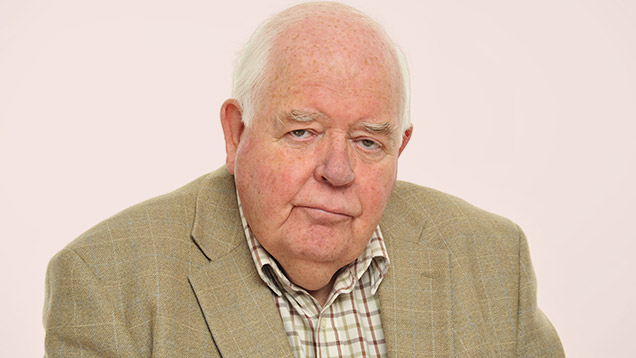Opinion: Election hype will miss the issue
 David Richardson
David Richardson By 7 May, I predict that most British electors will be rueing the decision to have five-year fixed-term parliaments.
Under the old system, while it was usually obvious when a general election was getting close, the actual date was chosen by the prime minister who announced it three weeks before the event. At least that limited the period of most intense electioneering during which candidates threw insults at one another.
But the new arrangement means we, the electorate, will suffer four months of daily claim and counter claim; lies and refutations; accusations of malpractice and incompetence; and worse. Indeed, it’s started already and I for one am fed up with it.
See also: Have your say on our website forums
How can the uncommitted voter distil genuine promises from untruths amid this noisy rhetoric? Might it not be that, by election day, many of us will not believe any actual or potential politician? And if that is the case might it lead to an even lower turnout of voters than the pathetic percentages we’ve experienced over the past few elections? For who wants to vote for someone they feel they can’t believe or trust?
Sadly, for those reasons alone, the result on 7 May looks too close to call. And with more parties than ever trying to attract our attention we could end up with a dog’s breakfast of a government which owes its existence to a small minority of the electorate.
“Might it not be that, by election day, many of us will not believe any actual or potential politician?” David Richardson
More particularly, agriculture seems destined to be largely ignored in the infighting as debate is dominated by concerns about the NHS, the rising tide of immigrants and the economy.
Who cares about food and our declining self-sufficiency in any case? Well, we the farmers do and somehow, for the sake of consumers as well as ourselves, we have to make our voices heard.
Recent pronouncements, like many at Oxford last week, have concentrated on “the exciting future that lies ahead for farmers”. I cannot deny the likelihood that, as world population increases and prosperity spreads across developing economies, demand for food will rise and agricultural opportunities will multiply.
But that prospect is speculative and for the future. It certainly is not here yet. And farmers across the UK are asking – how do we survive until then?
For instance – the exodus from dairy farming because of the collapse in milk prices has reached crisis levels. Fewer than 10,000 milk producers are left in this country and further price cuts are already in the pipeline. How many more will be forced out of producing this daily staple? Will we soon have to rely on a few multi-thousand cow herds that can survive because of their scale plus ever-increasing imports?
Combinable crop growers are facing similar crises of collapsing prices because of oversupplied markets. Few can show a profit from prices that ruled for most of last year and, although values have stuttered upwards recently, they are still lower than most growers’ costs of production. Forward-selling at the right time has helped a minority to return a profit, but many arable farmers will be looking at losses on their 2014 accounts.
Meanwhile, most politicians who do have any interest in farming cannot wait to get rid of EU aid and make the industry rely entirely on volatile world markets. Those who represent us must tell them how destructive that would be and try to make them see sense. But will they listen? Or will they be so preoccupied with gaining – or re-gaining – power that such vital messages will be ignored?
David Richardson
David Richardson farms about 400ha (1,000 acres) of arable land near Norwich in Norfolk in partnership with his wife Lorna and his son Rob

